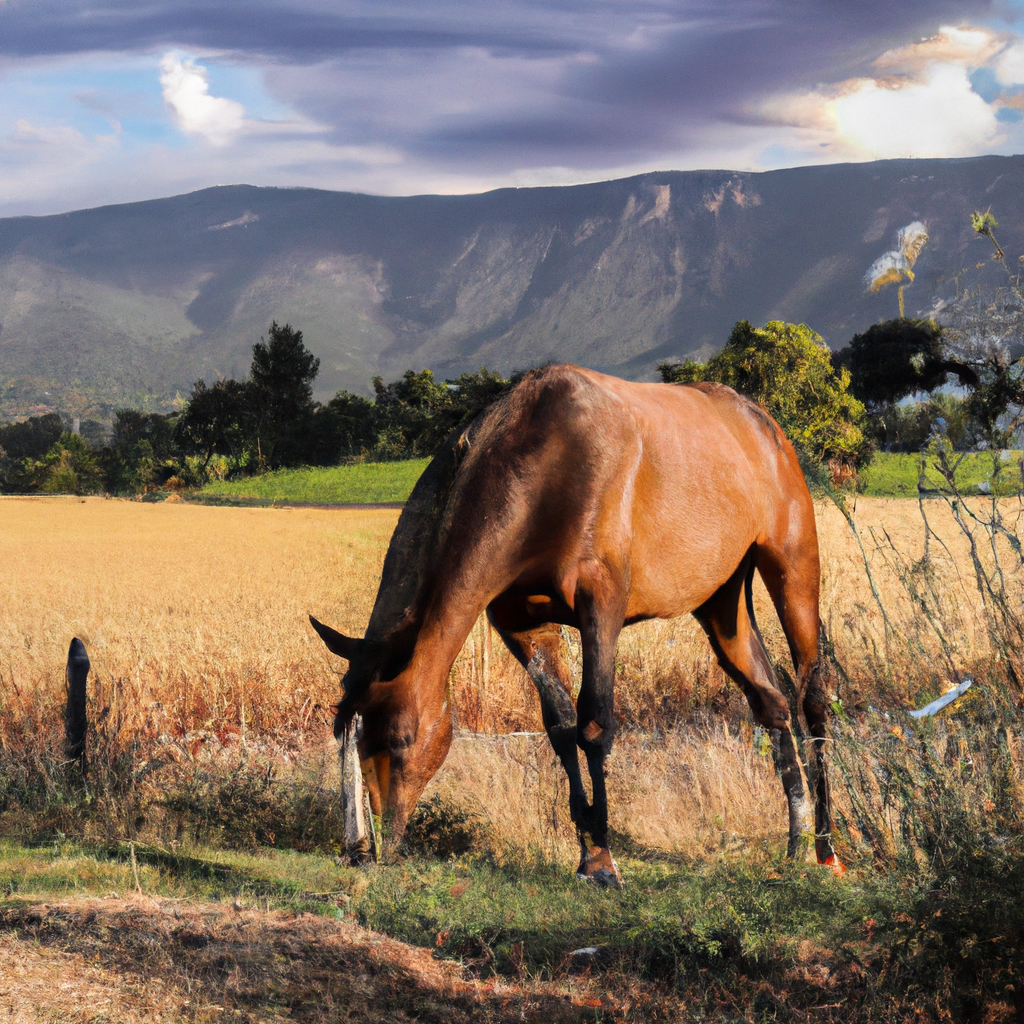
As horse owners and enthusiasts, we are always striving to provide the best care and nutrition for our equine friends. While hay has long been a staple in horse diets, there are a plethora of lesser-known feeding options that can offer unique benefits to support optimal horse health. In this article, we will delve into these alternative feeding options, exploring their advantages and how they can contribute to your horse’s overall well-being.
1. Forage Alternatives
The Role of Forage in Horse Diets
Forage plays a vital role in a horse’s diet, providing essential nutrients, fiber, and promoting digestive health. While hay is commonly used as the primary forage source, there are other options to consider:
1.1. Pasture Grazing
Allowing horses access to pasture grazing not only provides a diverse range of grasses and plants but also mimics their natural feeding behavior. Pasture grazing offers a variety of nutrients, including vitamins and minerals, and promotes exercise, mental stimulation, and social interaction.
1.2. Silage and Haylage
Silage and haylage are fermented forage options that can offer increased nutritional value compared to traditional hay. These alternatives undergo anaerobic fermentation, preserving the nutrients and increasing digestibility. Silage is typically made from grasses, while haylage is made from grasses or legumes.
1.3. Alternative Forage Sources
In addition to traditional hay, there are other forage sources to consider, such as alfalfa, beet pulp, and chaff. Alfalfa is rich in protein, calcium, and other essential nutrients, while beet pulp provides a good source of digestible fiber. Chaff, which consists of chopped hay or straw, can be mixed with other feeds to encourage slower eating and increased chewing.
2. Supplements for Optimal Nutrition
Understanding the Role of Supplements
Supplements can be a valuable addition to a horse’s diet, ensuring they receive all the necessary vitamins, minerals, and other essential nutrients. Here are some options to consider:
2.1. Vitamin and Mineral Supplements
Depending on your horse’s specific needs, vitamin and mineral supplements can help fill in any nutritional gaps. These supplements are available in various forms, including powders, pellets, and liquids, and can be tailored to meet individual requirements.
2.2. Joint Supplements
As horses age or engage in strenuous activities, joint health becomes a crucial consideration. Joint supplements containing ingredients like glucosamine and chondroitin sulfate can support joint mobility and help prevent or manage joint-related issues.
2.3. Omega-3 Fatty Acid Supplements
Omega-3 fatty acids play a vital role in promoting overall health and well-being. These supplements, often derived from sources like fish oil or flaxseed, can contribute to a shiny coat, healthy skin, and support immune function.
3. Alternative Protein Sources
Diversifying Protein Options
Protein is an essential component of a horse’s diet, contributing to muscle development, tissue repair, and overall growth. While hay and grass provide a significant portion of a horse’s protein needs, alternative protein sources can offer added benefits:
3.1. Legumes and Soybean Meal
Legumes, such as clover and alfalfa, are excellent sources of protein for horses. Additionally, soybean meal, a byproduct of soybean oil production, is high in protein and can be included in a horse’s diet to supplement their protein intake.
3.2. Insect-Based Protein
Emerging as a sustainable alternative, insect-based protein, like mealworms or black soldier fly larvae, can provide a highly digestible and environmentally friendly protein source for horses. These options are also rich in amino acids and can contribute to overall muscle health.
4. Hydration Alternatives
Ensuring Adequate Hydration
Proper hydration is crucial for a horse’s overall health and well-being. While water is the primary source of hydration, alternative options can be considered to encourage increased water intake:
4.1. Electrolyte Supplements
During periods of intense exercise or in hot weather, horses may lose essential electrolytes through sweat. Electrolyte supplements, available in powder or paste form, can help replenish these vital minerals and encourage water consumption.
4.2. Soaked Feeds
Soaking feeds, such as beet pulp or hay cubes, can increase water content, making them more palatable and hydrating. This can be particularly beneficial for horses with dental issues or those who struggle to drink sufficient water.
Conclusion
In conclusion, exploring lesser-known feeding options can provide valuable insights and opportunities for optimizing your horse’s health. By considering alternative forage sources, incorporating supplements to address specific nutritional needs, diversifying protein options, and promoting adequate hydration, you can ensure your horse receives a well-rounded diet that supports their overall well-being. Remember, every horse is unique, so consult with your veterinarian or equine nutritionist to determine the best feeding plan for your individual equine companion.
